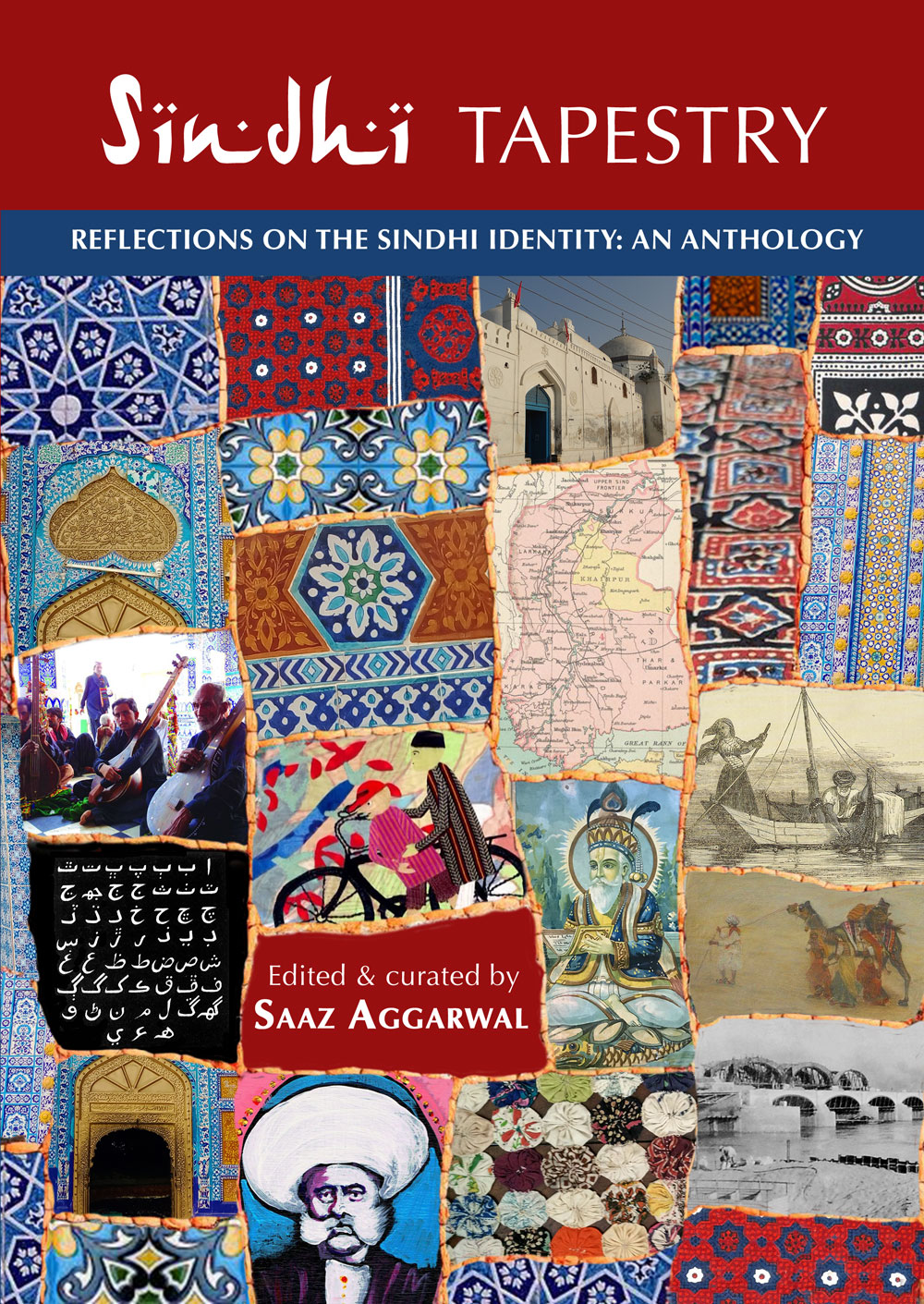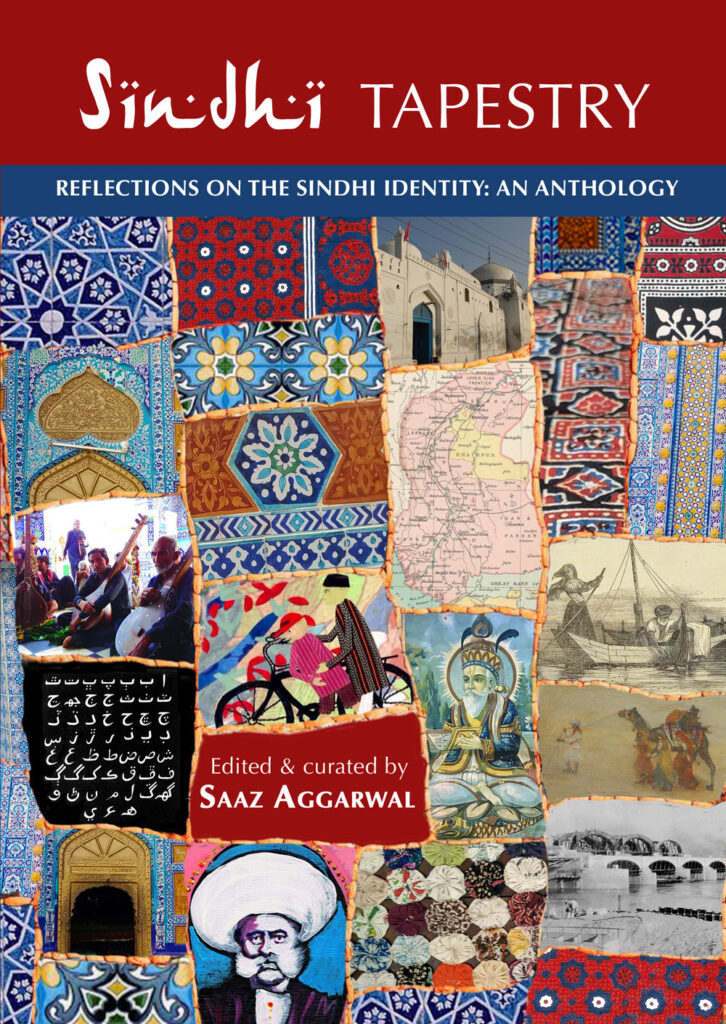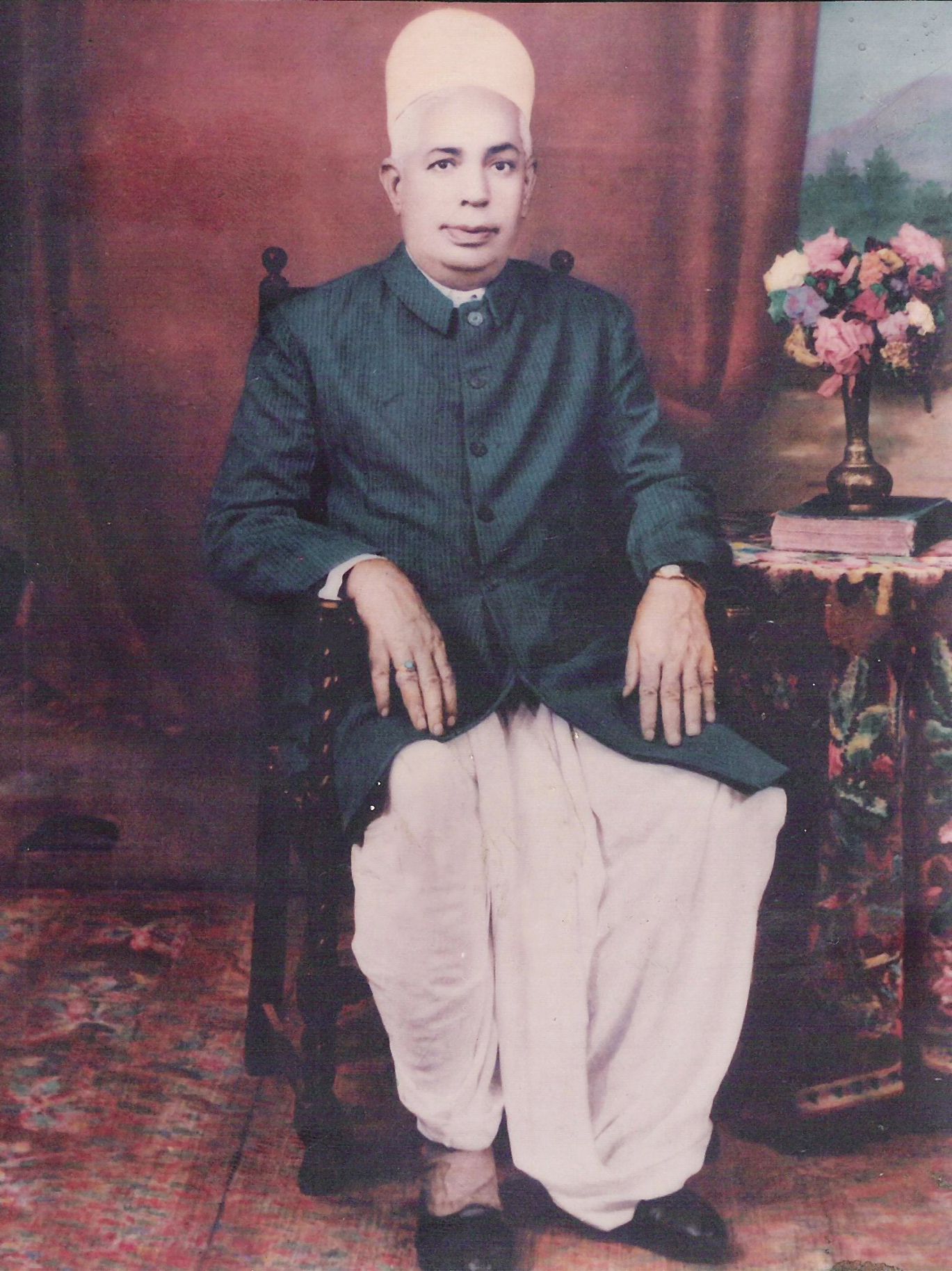
Sindhi Tapestry
Reflections on the sindhi identity
An Anthology
The Open University, UK
About Sindhi Tapestry
Here is an ethnic group, abruptly displaced by the Partition of India in 1947, who lost everything. Role-model refugees, they went on to achieve pinnacles of success in every walk of life, contributing significantly to the communities in which they settled, in countries around the world.
Having fled a homeland that was quickly occupied by others, their history lapsed. Their language and culture dissipated, and their identity grew nebulous as they merged into adopted homelands, while tenuous connections to places they would never see sometimes lingered.
The dispersal and the aftershocks resulted in a lack of political representation. Their hard work, enterprise and material success faced them with prejudice and resentment in their adopted hometowns in newly independent India. Unflattering caricatures arose, and these served to distort perceptions others had of them, creating a diffidence within them about themselves and the past that had shaped them. Firmly putting that past – including its language, poetry, philosophy, art and music – aside, they faced their challenges resolutely. As they established themselves, many even grew to extraordinary wealth – an unexpected outcome that only served to enhance the negative stereotypes.
In 1947, India was partitioned, and Pakistan was formed on the basis of religion. The Hindu Sindhis, rendered homeless by this act, scattered and settled in different places where they established themselves as an enterprising and hardworking people and became financially successful in a surprisingly short period. Behind this façade, the history of this ethnic community was obscured and has only recently begun to be investigated, and many fascinating facts have emerged.
About the Contributors
The 60 contributors to this anthology range in age between 24 and 93.
34 live in India, 25 in other countries around the world, and one (the one with the highest number of pages in this book) in Sindh. Most are ethnically South Asian – but we also have an American, a Frenchman, a German, and a half-Filipino. Most of the contributors are academics or in creative professions, but there are also three doctors, three engineers and two from the armed forces. 31 have postgraduate degrees, and 16 are PhD. Quite a few, across this mix, are in business. Of the 60, 30 identify as women and 30 as men.
This distribution over age, location, and gender, has yielded a collection of essays that range from actual memories of pre-Partition Sindh; epiphanies of self-recognition; efforts at locating one’s cultural legacies while living in countries around the globe; affectionate remembrances of real characters who embody Sindh and Sindhiness in so many different ways; patterns of worship, of hospitality, of ways of relating that stand out; all kinds of little-known, or little-remembered, historical realities that fell prey to Partition – and more. What happened in Sindh after the Hindus left? Read that, and much more, in this book.
LIST of Contributors
Anju Makhija
Aroon Shivdasani
Atul Khatri
Dr Bindaas Rolu
Bob Ramchand
Chandra Jethanand Asoomal
Deepak Kirpalani
Devendra Kodwani
Dharmendra Tolani
Dirven Hazari
Dr Ali Gul Metlo
Gitanjali Kalro
Jai Alimchandani
Jurgen Schaflechner
Kajal Ramchandani
Kishore Mandhyan
Kusum Chhopra
Lou Gopal
Mamta Rughwani
Matthew Cook
Maya Khemlani David
Menka Shivdasani
Michel Boivin
Mohan Gehani
Mona Melwani
Murli Melwani
Mushtaq Rajpar
Namrata Asudani
Nandita Bhavnani
Nandu Asrani
Natasha Raheja
Nijram Bhagwanani
Nikhil Bhojwani
Nina Sabnani
Parmesh Shahani
Pir Mohammed Metlo
Pratap Kirpalaney
Raaj Lalchandani
Radhika Chakraborty
Ram Gulrajani
Ravi Tekchandani
Rita Kothari
Ritesh Uttamchandani
Roma Kirpalani
Ruve Narang
Saaz Aggarwal
Sajni Mukherji
Sanjay Mohinani
Sapna Bhavnani
Shakuntala Bharvani
Shiksha Sharma
Smriti Notani
Subash Bijlani
Subash Kundanmal
Sundri Parchani
Tarun Sakhrani
Trisha Lalchandani
Uttara Shahani
Vimmi Sadarangani
Zulfiqar Ali Kalhoro


